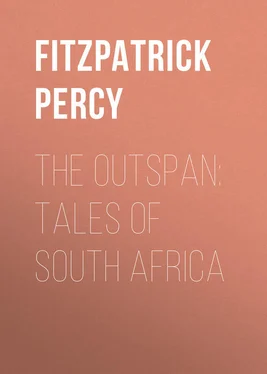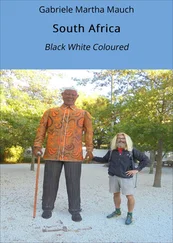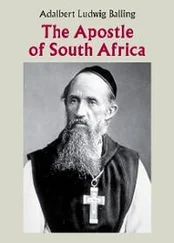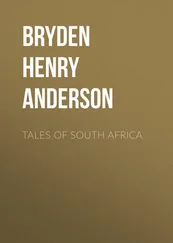Percy Fitzpatrick - The Outspan - Tales of South Africa
Здесь есть возможность читать онлайн «Percy Fitzpatrick - The Outspan - Tales of South Africa» — ознакомительный отрывок электронной книги совершенно бесплатно, а после прочтения отрывка купить полную версию. В некоторых случаях можно слушать аудио, скачать через торрент в формате fb2 и присутствует краткое содержание. Жанр: foreign_antique, foreign_prose, short_story, на английском языке. Описание произведения, (предисловие) а так же отзывы посетителей доступны на портале библиотеки ЛибКат.
- Название:The Outspan: Tales of South Africa
- Автор:
- Жанр:
- Год:неизвестен
- ISBN:нет данных
- Рейтинг книги:3 / 5. Голосов: 1
-
Избранное:Добавить в избранное
- Отзывы:
-
Ваша оценка:
- 60
- 1
- 2
- 3
- 4
- 5
The Outspan: Tales of South Africa: краткое содержание, описание и аннотация
Предлагаем к чтению аннотацию, описание, краткое содержание или предисловие (зависит от того, что написал сам автор книги «The Outspan: Tales of South Africa»). Если вы не нашли необходимую информацию о книге — напишите в комментариях, мы постараемся отыскать её.
The Outspan: Tales of South Africa — читать онлайн ознакомительный отрывок
Ниже представлен текст книги, разбитый по страницам. Система сохранения места последней прочитанной страницы, позволяет с удобством читать онлайн бесплатно книгу «The Outspan: Tales of South Africa», без необходимости каждый раз заново искать на чём Вы остановились. Поставьте закладку, и сможете в любой момент перейти на страницу, на которой закончили чтение.
Интервал:
Закладка:
“We just swore together and like one man, for we really had reckoned to get to this flying Dutchman this time without further disappointments. We looked around for a place to off-saddle, and made for a koppie surrounded by trees.
“Heron was ahead. As we reached the trees, he pulled up, and with a growing grin called to me, ‘I say, just look here! Here’s a rum start!’
“It was clearly our friend Sebougwaan. He was standing with arms akimbo, and feet well set apart, surveying critically the framework of a house he was putting up.
“He had a towel round his loins, and an eye glass screwed tightly into the near eye. Nothing else.
“We viewed him en profile for quite awhile, until he turned sharply our way and saw us. It was one of the pleasantest faces in the world that smiled on us then. Sebougwaan walked briskly towards us, saying:
“‘Welcome, gentlemen, welcome. It’s not often I see a white face here. And, by-the-by, you’ll excuse my attire, won’t you? The custom of the country, you know, and “In Rome – ” Well, well. You’ll off-saddle, of course, and have a snack. Here, Komola! Bovaan! Hi, you boys! Where the devil are they? Here, take these horses and feed them. And now just “walk into my parlour.” Nothing ominous in the quotation, I assure you.’
“He bustled us around in the jolliest manner possible, and kept up a running fire of questions, answers, comments, and explanations, while he busied himself with our comfort.
“It was a round wattle-and-daub hut that he showed us into, but not the ordinary sort. This one was as bright and clean as a new pin. Bits of calico and muslin and gay-coloured kapelaan made curtains, blinds, and table-covers. The tables were of the gin-case pattern, legs planted in the ground; the chairs ordinary Bush stools; but what struck me as so extraordinary was the sight of all the English periodicals and illustrated papers laid out in perfect order and neatness on the table, as one sees them arranged in a reading-room before the first frequenters have disturbed them. There was also a little hanging shelf on which were five books. I couldn’t help smiling at them – the Bible, a Shakespeare, the Navy List, a dictionary, and Ruff’s Guide.
“They say that you may tell a man by his friends, and most of all by his books; but I couldn’t make much out of this lot, with one exception. I looked at the chap’s easy bearing, the pleasant, hearty manner and torpedo beard, and concluded that the Navy List, at any rate, was a bit of evidence. However, he kept things going so pleasantly and gaily that one had no time in which to observe much.
“Lots of little things occurred which were striking and amusing in a way, because of the peculiar surroundings and conditions of the man’s life rather than because of the incidents themselves. For instance, when we owned up that we had had no breakfast, we found ourselves within a few minutes enjoying poached eggs on toast, and I felt myself grinning all over when the Swazie boy waited in passable style with a napkin thrown carelessly over one shoulder. Surely a man must be a bit eccentric to live such a life as this in such a place and alone, and yet take the trouble to school a nigger to wait on him in conventional style.
“I thought of the peculiar littleness of teaching a nigger boy that waiter’s trick, and concluded that our friend, whatever his occupation might be, was not a trader from necessity. After breakfast he produced some excellent cigarettes – another fact in the nature of a paradox.
“We were making for the landing-place on the Tembe River, and had intended moving along again that day; but our host was pressing, and we by no means anxious to turn our backs on so pleasant a camp, so we stayed overnight, and became good friends right away.
“I was quite right. He had been in the navy many years, and had given it up to play at exploring. He said he had settled down here because there was absolute peace and a blissful immunity from the ordinary worldly worries. Once a week a native runner brought him his mail letters and papers, and, in fact, as he said, he was as near to the world as he chose to be, or as far from it.
“He had a curious gold charm attached to a watch-chain, which I saw dangling from a projecting wattle-end in the dining-hut. I was looking at this, and puzzled over it; it seemed so unlike anything I had ever seen. He saw me, and, after putting us to many a futile guess, told us laughingly that he had found it in one of the villages they had sacked on the West Coast. I don’t know what sort of part he took in these nasty little wars, but I’ll bet it was no mean one. We listened that night for hours to his easy, bright, entertaining chat, and although he hardly ever mentioned himself or his own doings, one couldn’t but see that he had been well in the thick of things, and dearly loved to be where danger was. Now and then he let slip a reference to hardships, escapes, and dangers, but only when such reference was necessary to explain something he was telling us of. What interested us most was his description of General Gordon – ‘Chinese Gordon’ – with whom he appeared to have been in close contact for a good while. The little details he gave us made up an extraordinarily vivid picture of the soldier-saint, the man who could lead a storming-party, a forlorn hope, with a Bible in one hand and a cane in the other; the man who, in the infiniteness of his love and tenderness, and in the awful immutability of his decision and justice, realised qualities in a degree which we only associate with the Deity. I felt I could see this man helping, feeding with his own short rations, nursing, and praying with, the lowliest of his men, the incarnation of mercy. But I also saw him facing the semi-mutinous regiment of barbarians, and, with the awful passionless decision of fate itself, singling out the leaders here and there – in all a dozen men – whom he shot dead before their comrades, and turning again as calm and unmoved as ever to repeat his order, which this time was obeyed! I pictured this man, with the splendid practical genius to reconquer and reorganise China, treasuring a cutting which he had taken from what he verily believed to be the identical living tree from which Eve had plucked the forbidden fruit. Surely, one of the enigmas of history!”
“Do you mean to say that’s a fact?” asked the millionaire, as old Barberton paused.
“As far as I know, it certainly is. Our friend told it as a fact, and not in ridicule, either, for he had the deepest reverence and regard for Gordon. He assured us, moreover, that Gordon was once most deeply mortified and offended by a colleague of his treating the matter as a joke and laughing at it. Gordon never forgot that laugh, and was always constrained and reserved in the man’s presence afterwards.
“I wish I could remember a hundredth part of our host’s anecdotes of well-known people, descriptions of places and of peoples, accounts of travels and adventures. He seemed to know everyone and all places. It was three in the morning before we thought of turning in. After breakfast we saddled up and bade adieu, but our friend walked along part of the way with us to put us on the right path. He was carrying a bunch of white Bush flowers – a curious fancy, I thought, for a man clothed in a towel and an eyeglass. I remarked on the beauty of the mountain flowers, and he held up the bunch.
“‘Yes,’ he said, ‘they are lovely, aren’t they? Poor old Tarry! He was my man – the only other white man that ever lived here. He was with me for many years, and died here two summers back – fever contracted on the Tembe. Poor old fellow! I fixed him up on the bluff yonder. He used to gather these flowers and sit there every day of his life looking out towards Delagoa, wondering if we would ever quit this place and get a sight of old Ireland again. I take him a bunch once in a while. Come up and see where a good friend lies.’
Читать дальшеИнтервал:
Закладка:
Похожие книги на «The Outspan: Tales of South Africa»
Представляем Вашему вниманию похожие книги на «The Outspan: Tales of South Africa» списком для выбора. Мы отобрали схожую по названию и смыслу литературу в надежде предоставить читателям больше вариантов отыскать новые, интересные, ещё непрочитанные произведения.
Обсуждение, отзывы о книге «The Outspan: Tales of South Africa» и просто собственные мнения читателей. Оставьте ваши комментарии, напишите, что Вы думаете о произведении, его смысле или главных героях. Укажите что конкретно понравилось, а что нет, и почему Вы так считаете.












